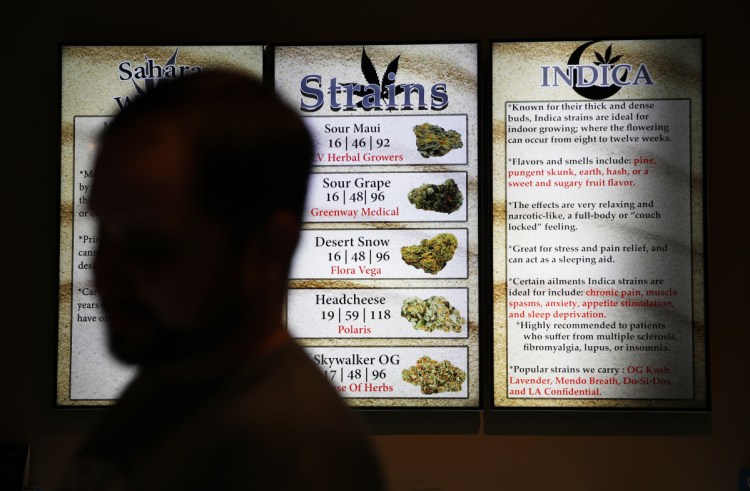RENO, Nev. — Nevada regulators and industry insiders say the state’s first year of broad marijuana legalization has exceeded even their highest expectations, with sales and tax collections already surpassing year-end projections by 25 percent.
Numbers from June are still outstanding but are expected to push taxable sales past $500 million, netting total tax revenue in the neighborhood of $70 million – with about $25 million devoted to schools.
“I think it has been a huge success, and I don’t see how anyone could argue with that,” said Andrew Jolley, president of the Nevada Dispensary Association.
A legal battle over distribution licenses made for a rocky start last July, but Nevada’s $195 million in sales for the first six months dwarfed the totals in Washington state ($67 million) and Colorado ($114 million) in 2014.
“We are viewed by many others outside Nevada as essentially being the gold standard,” Nevada Taxation Department Director William Anderson told The Associated Press. “It’s an often-used term, but it’s appropriate here.”
State Sen. Tick Segerblom, a Las Vegas Democrat who helped lead the legalization effort, added the “biggest surprise has been that there’ve been no surprises.”
But not all the reviews are glowing.
Some medical marijuana patients insist they were better off before Nevada legalized recreational pot, and opponents remain skeptical of the impact on children.
Nevada’s Public Safety Department plans to release early data on the trends in the next few weeks.
Anecdotally, Douglas County School Superintendent Teri White said her district near Carson City had more problems with marijuana the first three months of the school year than she’d experienced her entire career.
Jim Hartman, a leader of the effort to defeat the 2016 ballot measure legalizing recreational sales, said it’s too early to draw conclusions. “But it only makes sense to me if you legitimize it and make it more accessible, you are going to get more youth use.”
What irks him most are those giddy about the revenue numbers he says are being blown out of proportion in terms of benefiting schools.
“They are celebrating the sale of marijuana products. It isn’t as though SAT scores are increasing,” said Hartman, chairman of Nevadans for Responsible Drug Policy.
The 10 percent retail tax levied only on recreational sales goes to the state’s rainy day fund, a total of $26.5 million through May. Money raised from the 15 percent wholesale tax applicable to medical use as well – about $24 million through May – goes to schools, but not until about one-third is used to cover local and state administrative costs.
That means about $25 million in wholesale revenue anticipated for the first full year of sales will be shared by schools in Nevada’s 17 counties based on enrollment, with $17 million likely headed to Las Vegas and surrounding Clark County and $8 million divided among the rest.
Send questions/comments to the editors.



Success. Please wait for the page to reload. If the page does not reload within 5 seconds, please refresh the page.
Enter your email and password to access comments.
Hi, to comment on stories you must . This profile is in addition to your subscription and website login.
Already have a commenting profile? .
Invalid username/password.
Please check your email to confirm and complete your registration.
Only subscribers are eligible to post comments. Please subscribe or login first for digital access. Here’s why.
Use the form below to reset your password. When you've submitted your account email, we will send an email with a reset code.